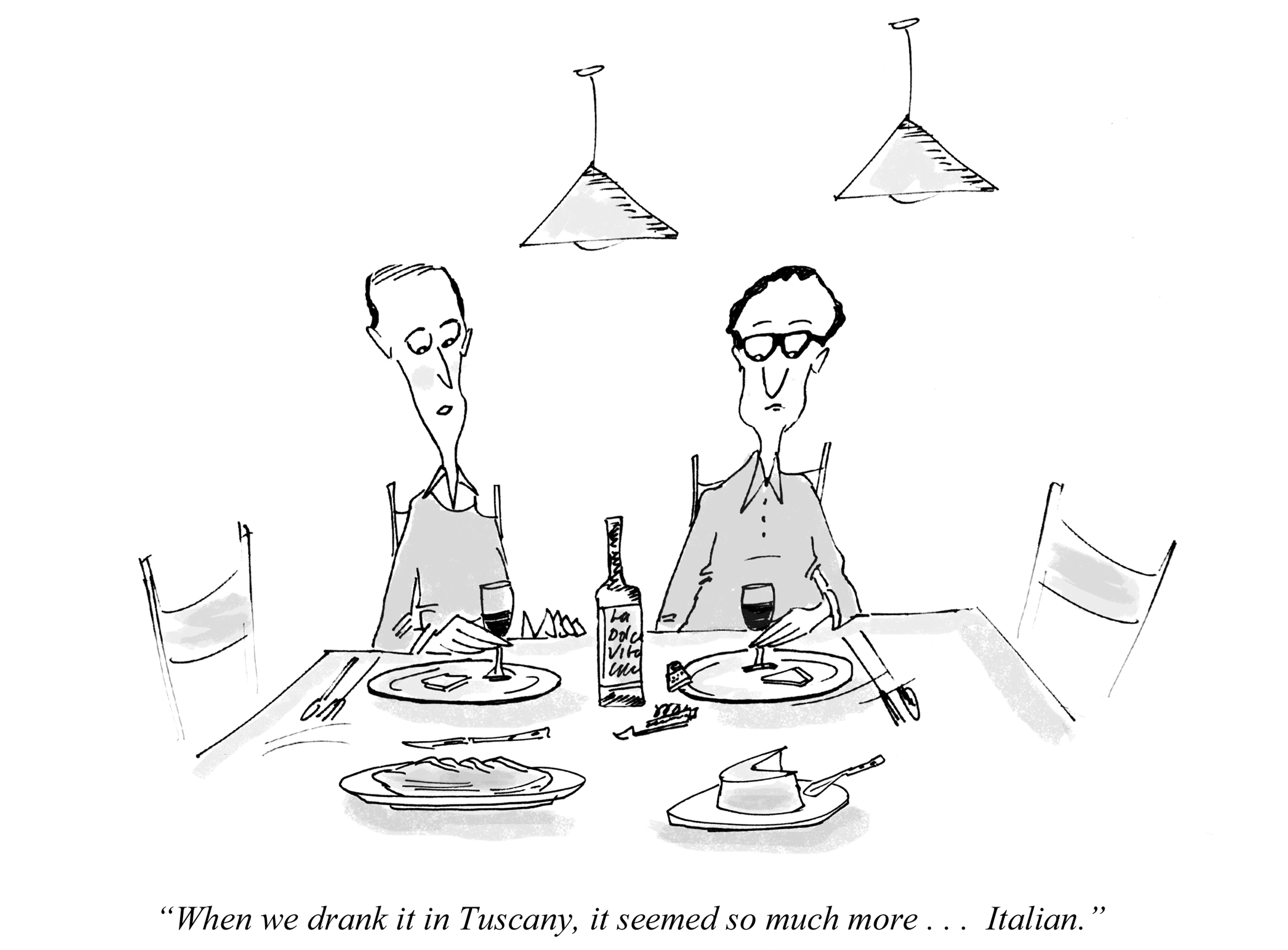
I drew this cartoon a few years ago after a conversation with my wife about just how much the where and the when of wine affects our experience of it. It’s especially common, we decided, with people who have just returned from vacation with a bottle or two in their suitcases. It seemed almost supernaturally delicious there, but doesn’t have quite the same old magic when we pull the cork here.
Re-living that original experience would require conjuring up a whole world — the view of the mountains from the terrace, the sweetness of the boy waiter, the lovely sequence of courses, the pleasantness of the conversation and in general, just how good a time it was.
It’s a let-down when, expecting our suitcase wine to recover it all for us, we find it’s not up to the task. But it’s not the wine, per se, that’s letting us down. It’s a failure on our part to acknowledge the degree to which the pleasure we derive from wine is context-dependent.
Food, people and places all provide context, but perhaps the most powerful structures for framing and mediating our experience with wine are the intangible ones provided by imagination.
I’ve often been struck by the thought that when I’m at Formaggio Kitchen selling wine, what I’m mainly doing is building an imaginative construct within which the customer can see herself enjoying a particular wine. I’m engaging in this sort of thing when I describe, for example, the 65% grade of the vineyards in Marcillac, where vines for Domaine du Cros’ Lo Sang du Pais are cultivated, or when we tell guests that Jean-Philippe and Jean-Francois Bourdy still manage the same property (and live in the same house) their winemaking ancestors did in the 1470’s.
Neither of these two facts have anything to do with the organoleptic features of the wine in question – but they have everything to do with creating an imaginative world which the consumer can step into as he anticipates and then actually consumes these wonderful products of natural and social history.
When presented truthfully and in good faith these stories stimulate the imagination and are an authentic source of at least part of the pleasure we take in wine. I’d go further and say they are a source of joy in their own right, since the more you enter a wine’s legitimate narrative, the more there is about them to enjoy and appreciate.
The people I know who derive the greatest pleasure from wine are past masters of using the imagination to encircle every wine with a halo of context that includes the places, people, places and events that made it what it is. One important reason we’re in love with smaller-production, family properties is because they are especially rich sources of just this kind of added value.
I’m afraid no one has ever told the couple in the cartoon any of this, poor fellows. Maybe they need a new wine shop.